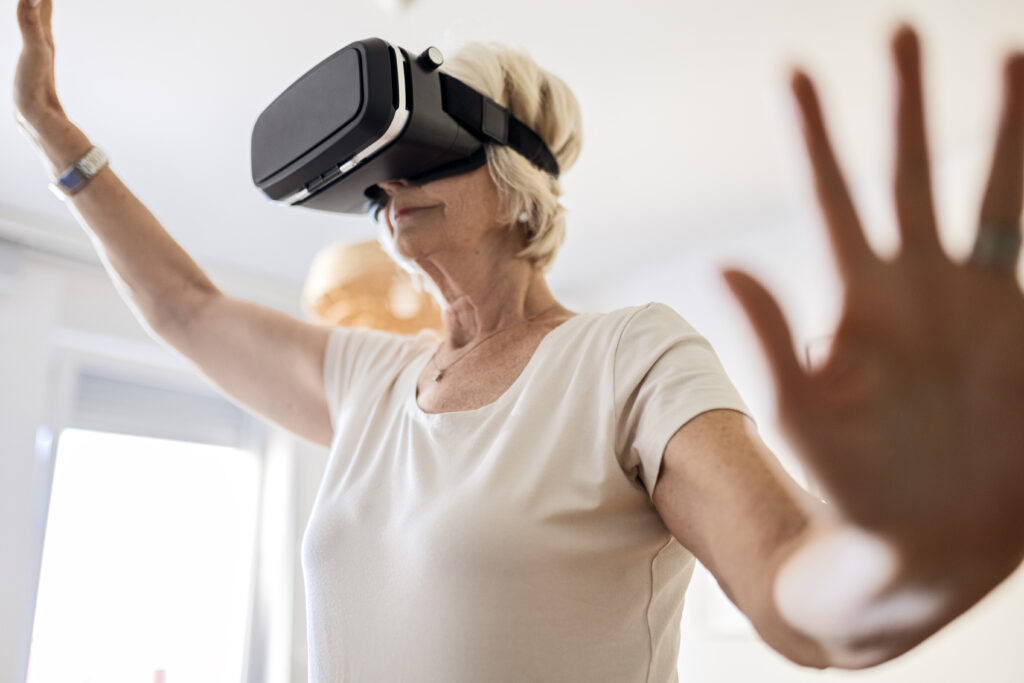Studies are helping to spot lesser-known symptoms earlier
Research shows that poor spatial navigation can be an early sign of Alzheimer’s disease – long before symptoms such as memory problems arise.
Another common symptom is feeling ‘lost’ even in familiar places.
This is especially true of people aged 65 and over in the early stages of the disease.
Studies are now using digital technology to help detect these early signs of dementia, by focusing on how well people navigate their surroundings.
Virtual reality
The Virtual Reality Navigation Study uses virtual reality (VR) to test how people find their way through different environments.
Healthy participants play a game using VR goggles called the ‘Cave Crystal Quest’. The game involves several levels where participants explore a cave in order to find a hidden crystal. They are then asked to complete a questionnaire about their experiences and how easy they found it to navigate the game.
It is hoped that the data collected on navigation could then be used as healthy control data for comparison with the performance of people with the early signs of Alzheimer’s disease.
Mobile phone games
Sea Hero Quest is a similar mobile game that aims to help us understand how people navigate. Millions of people have played the game, allowing researchers to collect a huge amount of data on what “normal” navigation looks like.
By comparing this with data from people at risk of dementia, researchers can see if there are patterns that might indicate early warning signs of the disease.
Do you want to take part in a study to help spot the early signs of dementia? Sign up to Join Dementia Research today to be contacted about research you could take part in.
Tomorrow, read the next in our series about 10 reasons to be hopeful, focused on risk factors for dementia.

